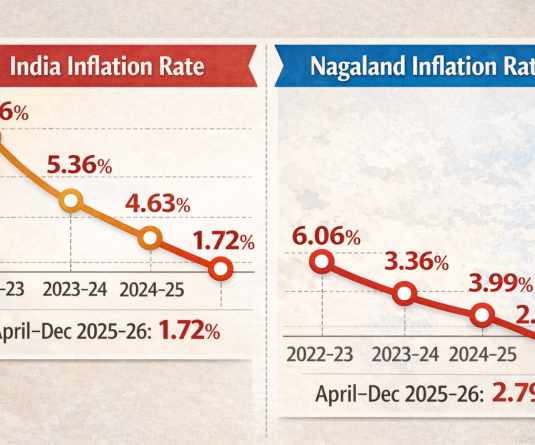Skill proficiency test module training for trainers on brick masonry organized by the NBOCWWB with Zynorique Initiatives as service provider recently at Hazadisa village under Dhansiripar sub-division recently. (Morung Photo)
.jpg)
Panel for skill proficiency testing and grading system developed
Imti Longchar
Dimapur | November 5
Nagaland Labour Department in collaboration with Zynorique Initiatives, an architectural firm based in Nagaland has taken a significant step by developing a panel for skill proficiency testing along with grading system. This panel aims to establish a mechanism that can assess the qualification and skills of construction workers in different disciplines.
Such initiatory has been long time coming, as the construction industry in Nagaland has been operating in a largely unregulated environment, with no system in place to verify the qualifications or skills of its workforce.
This lack of oversight has led to influx of unskilled workers, unscrupulous practices, where semi-skilled workers are often promoted to skilled positions without the necessary expertise, sometime with as little as one or two years of experience.
Contractor-centric certification
One of the main issues arising from this situation is the contractor-centric nature of certification. With the absence of a standardized assessment system, the onus is mostly left on the tikaders (contractors/foremen) to take matters in their own hands and assess and promote the workers as per their discretion.
These issues has, more often not, resulted in shoddy workmanship, compromising the safety and structural integrity of buildings, raising serious safety concerns for homeowners and the broader community. Instance of sub standard construction works which does not meet the safety and building code are a common sight.
Chingwang Konyak, a tikader from Mon town explains how a rising number of unskilled construction workers are taking up projects beyond their skill set capacity. Most elevate themselves to skilled worker status through recommendation from family members or relatives when they don’t have adequate skills or knowledge, he pointed out.
”I have had to rectified numerous sub-standard constructions build without proper techniques here in Mon town itself, Chingwang, who is a government certified mason revealed. He expressed concern that this not only compromise the safety of buildings, but risk human lives as well as harm the integrity of genuine workers like him.
Standardised assessment needed
Founder of Zynorique Initiatives, Richard Belho advocated for establishment of an independent, standardized system that assess and certifies construction workers skills objectively.
Speaking to The Morung Express, Belho, who spearheaded the development of the panel, is confident that the proficiency assessment system once introduced can distinguish genuine construction workers, regulate labor rates and may even assist in creating a database to monitor migrant labourers.
“The initiative is to introduce a certification system that will provide a seal of approval from the government for genuinely skilled workers. The certification process will follow a physical examination format, evaluating the skills of workers and awarding them the appropriate certification,” Belho explained.
Panels have been developed for various construction disciplines such as brick masonry, carpentry, electrical work, tiling, stone masonry, RCC and plumbing.
Workers who pass the proficiency test can receive official certification, which will provide them with a competitive advantage in the job market. This certification should serve as a testament to their skills and reliability, Belho said.
And that way, homeowners and property developers will be encouraged to hire certified workers, as the certification will guarantee a higher standard of work. This will reduce instances of shoddy construction and help protect the interest of those investing in construction projects, he added.
On the issue of unregulated labour rates, Belho said the pressing need for regulation of rates can become a reality if the construction industry is streamlined.
For starters, the panel for skill proficiency test can be utilized to regulate the rates according to the level of skills a person possess duly certified by an appropriate authority. The panel can be formulated further into more elaborate and comprehensive levels so that highly skilled or specialized workers are categorized accordingly and their rates are defined, Belho stated.
Panel entrusted to district administration
Belho, meanwhile, informed that the panels for the skill proficiency assessment has been entrusted to the district administrations and the onus was on the district commissioners who head the District Skills Committee (DSC) on how they carry it forward for initiating the skill examination.
Also speaking to this newspaper, Chief Executive Officer of Nagaland Building and Other Construction Workers’ Welfare Board (NBOCWWB) under Labour Department, T Chubayanger said the successful implementation of this panel centers on the ability of the DSC which falls under the district administration.
Mention may be made that DSC operates under the Ministry of Skill Development and Entrepreneurship to promote inter-departmental convergence and strengthen the skill and employment ecosystem.
The DSC is a component of the Skill Mission India initiated by the Ministry of Skill Development and Entrepreneurship, Government of India. Its primary objective is to facilitate skill development and vocational training programs at the district level.
The functions include identifying local skill development needs, planning and coordinating skill development programs, assessing the demand for various skills in the district, and recommending suitable training programs to address the needs.
The DSC also encourages inter-departmental convergence and promotes collaboration and synergy among various government departments, such as education, labor and industry to ensure holistic approach to skill development.
Chubayanger noted that adequate funding, administrative and technical support will be essential for the DSCs to ensure the effective and widespread adoption of the skill testing mechanism.
While it remains to be seen how quickly and effectively the DSCs can kick start in implementing this initiative, Belho informed that there are already skilled trainers to assist the DSC in executing the technical aspects of the skill assessment if required.
Since 2022, the Labour Department with Zynorique Initiatives as service provider has been conducting 90 day ‘Training of Trainers’ programme in different districts on the skill proficiency test module on different disciplines. Those personnel who have undergone the training can be roped in to assist in the physical aspects of the testing process.
The involvement of skilled workers will not only streamline the logistic and technical aspects but also foster a sense of accountability in the process, Belho maintained.
In similar vein, the NBOCWWB CEO said if need arise; the DSC can make use of the trainers for the certification process. “That way we can start identifying the genuine workers, provide them certification so that they can get proper opportunities,” he added.
The CEO also stressed on sensitizing the public on the certification process. He also informed that the department was mooting on compiling a database for migrant workers coming to the state, adding, the absence of formal certification or records makes it difficult for authorities to monitor and regulate the influx of workers to the state.
This is the fourth report of the five-part series highlighting the experiences and challenges faced by the construction industry in Nagaland as part of the Kohima Press Club & Nagaland Building and Other Construction Workers Welfare Board Media Fellowship 2023.





